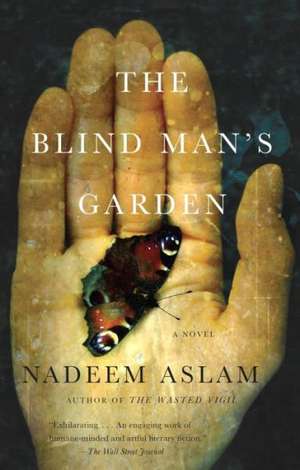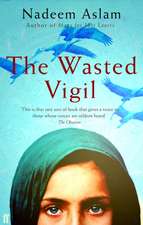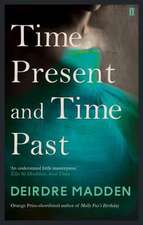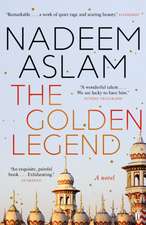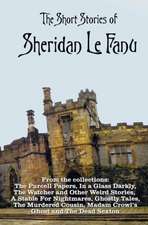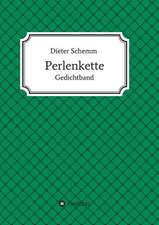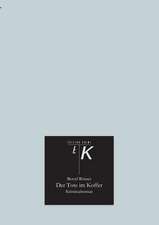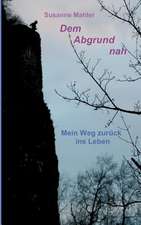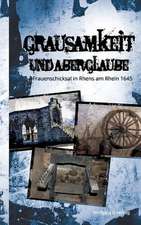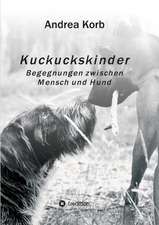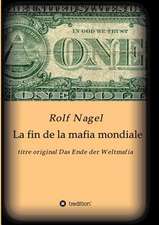The Blind Man's Garden
Autor Nadeem Aslamen Limba Engleză Paperback – 27 ian 2014
Jeo and Mikal are foster brothers from a small town in Pakistan. Though they were inseparable as children, their adult lives have diverged: Jeo is a dedicated medical student, married a year; Mikal has been a vagabond since he was fifteen, in love with a woman he can’t have. But when Jeo decides to sneak across the border into Afghanistan—not to fight with the Taliban against the Americans, rather to help care for wounded civilians—Mikal determines to go with him, to protect him.
Yet Jeo’s and Mikal’s good intentions cannot keep them out of harm’s way. As the narrative takes us from the wilds of Afghanistan to the heart of the family left behind—their blind father, haunted by the death of his wife and by the mistakes he may have made in the name of Islam and nationhood; Mikal’s beloved brother and sister-in-law; Jeo’s wife, whose increasing resolve helps keep the household running, and her superstitious mother—we see all of these lives upended by the turmoil of war.
In language as lyrical as it is piercing, in scenes at once beautiful and harrowing, The Blind Man’s Garden unflinchingly describes a crucially contemporary yet timeless world in which the line between enemy and ally is indistinct, and where the desire to return home burns brightest of all.
| Toate formatele și edițiile | Preț | Express |
|---|---|---|
| Paperback (2) | 52.89 lei 3-5 săpt. | +14.87 lei 7-13 zile |
| FABER & FABER – 6 feb 2014 | 52.89 lei 3-5 săpt. | +14.87 lei 7-13 zile |
| VINTAGE BOOKS – 27 ian 2014 | 119.66 lei 3-5 săpt. |
Preț: 119.66 lei
Nou
Puncte Express: 179
Preț estimativ în valută:
22.90€ • 24.95$ • 19.29£
22.90€ • 24.95$ • 19.29£
Carte disponibilă
Livrare economică 02-16 aprilie
Preluare comenzi: 021 569.72.76
Specificații
ISBN-13: 9780345802859
ISBN-10: 0345802853
Pagini: 367
Dimensiuni: 132 x 205 x 21 mm
Greutate: 0.3 kg
Editura: VINTAGE BOOKS
ISBN-10: 0345802853
Pagini: 367
Dimensiuni: 132 x 205 x 21 mm
Greutate: 0.3 kg
Editura: VINTAGE BOOKS
Extras
1.
History is the third parent.
As Rohan makes his way through the garden, not long after nightfall, a memory comes to him from his son Jeo’s childhood, a memory that slows him and eventually brings him to a standstill. Ahead of him candles are burning in various places at the house because there is no electricity. Wounds are said to emit light under certain conditions—touch them and the brightness will stay on the hands—and as the candles burn Rohan thinks of each flame as an injury somewhere in his house.
One evening as he was being told a story by Rohan, a troubled expression had appeared on Jeo’s face. Rohan had stopped speaking and gone up to him and lifted him into his arms, feeling the tremors in the small body. From dusk onwards, the boy tried to reassure himself that he would continue to exist after falling asleep, that he would emerge again into light on the other side. But that evening it was something else. After a few minutes, he revealed that his distress was caused by the appearance of the villain in the story he was being told. Rohan had given a small laugh to comfort him and asked,
“But have you ever heard a story in which the evil person triumphs at the end?”
The boy thought for a while before replying.
“No,” he said, “but before they lose, they harm the good people. That is what I am afraid of.”
2.
Rohan looks out of the window, his glance resting on the tree that was planted by his wife. It is now twenty years since she died, four days after she gave birth to Jeo. The scent of the tree’s flowers can stop conversation. Rohan knows no purer source of melancholy. A small section of it moves in the cold wind—a handful of foliage on a small branch, something a soldier might snap off before battle and attach to his helmet as camouflage.
He looks towards the clock. In a few hours he and Jeo will depart on a long journey, taking the overnight train to the city of Peshawar. It’s October. The United States was attacked last month, a day of fire visited on its cities. And as a consequence Western armies have invaded Afghanistan. “The Battle of the World Trade Center and the Pentagon” is what some people here in Pakistan have named September’s terrorist attacks. The logic is that there are no innocent people in a guilty nation. And similarly, these weeks later, it is the buildings, orchards and hills of Afghanistan that are being torn apart by bombs and fire-shells. The wounded and injured are being brought out to Peshawar—and Jeo wishes to go to the border city and help tend to them. Father and son will be there early tomorrow morning, after a ten-hour journey through the night.
The glass pane in the window carries Rohan’s reflection—the deep brown iris in each eye, the colourless beard given a faint brilliance by the candle. The face that is a record of time’s weight on the soul.
He walks out into the garden where the first few lines of moonlight are picking out leaves and bowers. He takes a lantern from an alcove. Standing under the silk-cotton tree he raises the lantern into the air, looking up into the great crown. The tallest trees in the garden are ten times the height of a man and even with his arm at full stretch Rohan cannot extend the light beyond the nearest layer of foliage. He is unable to see any of the bird snares—the network of thin steel wires hidden deep inside the canopies, knots that will come alive and tighten just enough to hold a wing or neck in delicate, harmless captivity.
Or so the stranger had claimed. The man had appeared at the house late in the morning today and asked to put up the snares. A large rectangular cage was attached to the back of his rusting bicycle. He explained that he rode through town with the cage full of birds and people paid him to release one or more of them, the act of compassion gaining the customer forgiveness for some of his sins.
“I am known as ‘the bird pardoner,’ ” he said. “The freed bird says a prayer on behalf of the one who has bought its freedom. And God never ignores the prayers of the weak.”
Rohan had remarked to himself that the cage was large enough to contain a man.
To him the stranger’s idea had seemed anything but simple, its reasoning flawed. If a bird will say a prayer for the person who has bought its freedom, wouldn’t it call down retribution on the one who trapped and imprisoned it? And on the one who facilitated the entrapment? He had wished to reflect on the subject and had asked the man to return at a later time. But when he woke from his afternoon nap he discovered that the bird pardoner had taken their perfunctory exchange to be an agreement. While Rohan slept, he visited the house again and set up countless snares, claiming to Jeo that he had Rohan’s consent.
“He told me he’ll be back early tomorrow morning to collect the birds,” Jeo said.
Rohan looks up into the wide-armed trees as he moves from place to place within the garden, the thousands of sleeping leaves that surround his house. The wind lifts now and then but otherwise there is silence and stillness, a perfect hush in the night air. He is certain that many of the snares have already been activated and he cannot help but imagine the fright and suffering of the captured birds, who swerve and whistle delicately in the branches throughout the day, looking as though their outlines and markings are drawn with a finer nib than their surroundings, more sharply focused. Now he almost senses the eyes extinguishing two by two.
The bigger the sin, the rarer and more expensive the bird that is needed to erase it. Is that how the bird pardoner conducts his business? A sparrow for a small deception, but a paradise flycatcher and a monal pheasant for allowing a doubt about His existence to enter the mind.
He places his hand on a tree’s bark, as if transmitting forbearance and spirit up into the creatures. He was the founder and headmaster of a school, and his affection for this tree lies in its links with scholarship. Writing tablets have been made from its wood since antiquity, a use reflected in its Latin name. Alstonia scholaris.
Carrying his lantern he begins to walk back to the house that stands at the very centre of the garden. Before building it he had visited the cities of Mecca, Baghdad, Cordoba, Cairo, Delhi and Istanbul, the six locations of Islam’s earlier magnificence and possibility. From each he brought back a handful of dust and he scattered it in an arc in the air, watching as belief, virtue, truth and judgement slipped from his hand and settled softly on the ground. That purifying line, in the shape of a crescent or a scythe, was where he had dug the foundations.
In the nineteenth century, Rohan’s great-grandfather had bred horses on this stretch of land, his animals known for their wiriness and nimble strength, the ability to go over the stoniest ground without shoes. During the Mutiny against the British in July 1857 a band of men had visited the horse breeder, the day of the eclipse, and in the seventeen minutes of half-darkness the Mutineers spoke about cause and nation, aiming these words like arrows against the Empire’s armoured might. Britain was the planet’s supreme power at the time and nothing less than the fate of the world hung in the balance. They needed his help but he told them there were no horses for him to give. The Norfolk Trotter and the Arab stallions, the Dhanni, Tallagang and Kathiawar mares—they had been sent to a remote location to escape the Ludhiana Fever sweeping the district.
As the rebels turned to leave, the ground splintered slowly before them and a crack grew and became a star-shaped fracture. A small sphere of blackest glass materialised at the centre of the star. Then they realised that it was in fact an eye, an ancient glare directed up at them through the grains of earth. A phantom. A chimera. One more instant and the entire head of the horse had emerged from the ground, the large-muscled neck giving a thrust and spraying soil into the eclipse-darkened air. The hooves found whatever purchase they needed and the rest of the grunting animal unearthed itself, the mighty rib cage and the great, potent haunches. Flesh tearing itself away from the living planet.
The ground exploded. A dozen horses, then almost two dozen, their diverse screams filling the air after the hours spent in the dark. An eruption of furious souls from below. The thrown earth and the shrieking of freed jaws and the terror of men during the daylight darkness.
Rohan’s great-grandfather had been informed the day before that Mutineers being hunted by the British would attempt to appropriate his animals. Over several hours he and his nine sons had prepared a trough deeper than their tallest stallion and had then led all twenty-five of their horses to it, their black, white, tobiano and roan colours shining in the oblique rays of the setting sun.
The horses were loved and they trusted the masters when they were blindfolded and led into the pit, but they reacted when the men began to pour earth onto them, beating their hooves against the ground as the level of soil rose higher along the legs. Stripes of white salt-froth slid down each body and in low voices the men spoke the phrases or words each animal was known to like. To comfort them if possible. But they continued with the work steadily and with determination all night as the stars appeared and hung above them like a glass forest, and later when a storm approached and the night became wild with electricity, the sky looking as though there was war and rebellion in heaven too, because not a single one of the horses would be allowed to fall into the hands of the Mutineers, who Rohan’s great-grandfather was convinced were misguided, his loyalty aligned with the British.
With only the horses’ necks remaining visible, the men leapt down into the trench and packed the earth with their feet, running among the twenty-five heads growing out of the earth as specks of soft blue fire came down from the lightning-filled sky to rest in the manes and in the men’s own beards and hair.
Allah had said to the South Wind, “Become!” and the Arabian horse was created.
The thought of clemency entering their hearts at last, the ten men went down the rows and placed a large basket upside-down over each head, a hood of woven grass fibres and reeds and palm fronds, a pocket of air for the animal to continue breathing. Then they climbed out and began the final throwing on of the soil, making sure not to cover the baskets entirely, leaving a thumbprint-sized entrance in each for air to slide in. There was nothing but a faint ground-shudder of hooves from within the earth as the horizon became marked with a brilliant red line behind the men and the sun rose and they began to wait for the arrival of the Mutineers, conscious suddenly of their weight on the ground.
Insects are being attracted by the lantern in Rohan’s hand as he walks back to the house, moths that look like shavings from a pencil sharpener, and moths that are so outsized and intensely pigmented they can be mistaken for butterflies.
There is a black feather on the path ahead of him, dropped by a struggling bird overhead.
The Mutiny was eventually put down across the land and one thousand years of Islamic rule came to an end in India, Britain assuming complete possession. A Muslim land was lost to nonbelievers and Rohan’s ancestors played a part in it.
This was the century-old taint that Rohan had tried to remove by spreading the soils of Allah’s six beloved cities here. Mecca. Baghdad. Cordoba. Cairo. Delhi. Istanbul. Scattering them broadly in the shape of the trench in which the horses were interred, the cleft out of which they had resurrected themselves.
History is the third parent.
As Rohan makes his way through the garden, not long after nightfall, a memory comes to him from his son Jeo’s childhood, a memory that slows him and eventually brings him to a standstill. Ahead of him candles are burning in various places at the house because there is no electricity. Wounds are said to emit light under certain conditions—touch them and the brightness will stay on the hands—and as the candles burn Rohan thinks of each flame as an injury somewhere in his house.
One evening as he was being told a story by Rohan, a troubled expression had appeared on Jeo’s face. Rohan had stopped speaking and gone up to him and lifted him into his arms, feeling the tremors in the small body. From dusk onwards, the boy tried to reassure himself that he would continue to exist after falling asleep, that he would emerge again into light on the other side. But that evening it was something else. After a few minutes, he revealed that his distress was caused by the appearance of the villain in the story he was being told. Rohan had given a small laugh to comfort him and asked,
“But have you ever heard a story in which the evil person triumphs at the end?”
The boy thought for a while before replying.
“No,” he said, “but before they lose, they harm the good people. That is what I am afraid of.”
2.
Rohan looks out of the window, his glance resting on the tree that was planted by his wife. It is now twenty years since she died, four days after she gave birth to Jeo. The scent of the tree’s flowers can stop conversation. Rohan knows no purer source of melancholy. A small section of it moves in the cold wind—a handful of foliage on a small branch, something a soldier might snap off before battle and attach to his helmet as camouflage.
He looks towards the clock. In a few hours he and Jeo will depart on a long journey, taking the overnight train to the city of Peshawar. It’s October. The United States was attacked last month, a day of fire visited on its cities. And as a consequence Western armies have invaded Afghanistan. “The Battle of the World Trade Center and the Pentagon” is what some people here in Pakistan have named September’s terrorist attacks. The logic is that there are no innocent people in a guilty nation. And similarly, these weeks later, it is the buildings, orchards and hills of Afghanistan that are being torn apart by bombs and fire-shells. The wounded and injured are being brought out to Peshawar—and Jeo wishes to go to the border city and help tend to them. Father and son will be there early tomorrow morning, after a ten-hour journey through the night.
The glass pane in the window carries Rohan’s reflection—the deep brown iris in each eye, the colourless beard given a faint brilliance by the candle. The face that is a record of time’s weight on the soul.
He walks out into the garden where the first few lines of moonlight are picking out leaves and bowers. He takes a lantern from an alcove. Standing under the silk-cotton tree he raises the lantern into the air, looking up into the great crown. The tallest trees in the garden are ten times the height of a man and even with his arm at full stretch Rohan cannot extend the light beyond the nearest layer of foliage. He is unable to see any of the bird snares—the network of thin steel wires hidden deep inside the canopies, knots that will come alive and tighten just enough to hold a wing or neck in delicate, harmless captivity.
Or so the stranger had claimed. The man had appeared at the house late in the morning today and asked to put up the snares. A large rectangular cage was attached to the back of his rusting bicycle. He explained that he rode through town with the cage full of birds and people paid him to release one or more of them, the act of compassion gaining the customer forgiveness for some of his sins.
“I am known as ‘the bird pardoner,’ ” he said. “The freed bird says a prayer on behalf of the one who has bought its freedom. And God never ignores the prayers of the weak.”
Rohan had remarked to himself that the cage was large enough to contain a man.
To him the stranger’s idea had seemed anything but simple, its reasoning flawed. If a bird will say a prayer for the person who has bought its freedom, wouldn’t it call down retribution on the one who trapped and imprisoned it? And on the one who facilitated the entrapment? He had wished to reflect on the subject and had asked the man to return at a later time. But when he woke from his afternoon nap he discovered that the bird pardoner had taken their perfunctory exchange to be an agreement. While Rohan slept, he visited the house again and set up countless snares, claiming to Jeo that he had Rohan’s consent.
“He told me he’ll be back early tomorrow morning to collect the birds,” Jeo said.
Rohan looks up into the wide-armed trees as he moves from place to place within the garden, the thousands of sleeping leaves that surround his house. The wind lifts now and then but otherwise there is silence and stillness, a perfect hush in the night air. He is certain that many of the snares have already been activated and he cannot help but imagine the fright and suffering of the captured birds, who swerve and whistle delicately in the branches throughout the day, looking as though their outlines and markings are drawn with a finer nib than their surroundings, more sharply focused. Now he almost senses the eyes extinguishing two by two.
The bigger the sin, the rarer and more expensive the bird that is needed to erase it. Is that how the bird pardoner conducts his business? A sparrow for a small deception, but a paradise flycatcher and a monal pheasant for allowing a doubt about His existence to enter the mind.
He places his hand on a tree’s bark, as if transmitting forbearance and spirit up into the creatures. He was the founder and headmaster of a school, and his affection for this tree lies in its links with scholarship. Writing tablets have been made from its wood since antiquity, a use reflected in its Latin name. Alstonia scholaris.
Carrying his lantern he begins to walk back to the house that stands at the very centre of the garden. Before building it he had visited the cities of Mecca, Baghdad, Cordoba, Cairo, Delhi and Istanbul, the six locations of Islam’s earlier magnificence and possibility. From each he brought back a handful of dust and he scattered it in an arc in the air, watching as belief, virtue, truth and judgement slipped from his hand and settled softly on the ground. That purifying line, in the shape of a crescent or a scythe, was where he had dug the foundations.
In the nineteenth century, Rohan’s great-grandfather had bred horses on this stretch of land, his animals known for their wiriness and nimble strength, the ability to go over the stoniest ground without shoes. During the Mutiny against the British in July 1857 a band of men had visited the horse breeder, the day of the eclipse, and in the seventeen minutes of half-darkness the Mutineers spoke about cause and nation, aiming these words like arrows against the Empire’s armoured might. Britain was the planet’s supreme power at the time and nothing less than the fate of the world hung in the balance. They needed his help but he told them there were no horses for him to give. The Norfolk Trotter and the Arab stallions, the Dhanni, Tallagang and Kathiawar mares—they had been sent to a remote location to escape the Ludhiana Fever sweeping the district.
As the rebels turned to leave, the ground splintered slowly before them and a crack grew and became a star-shaped fracture. A small sphere of blackest glass materialised at the centre of the star. Then they realised that it was in fact an eye, an ancient glare directed up at them through the grains of earth. A phantom. A chimera. One more instant and the entire head of the horse had emerged from the ground, the large-muscled neck giving a thrust and spraying soil into the eclipse-darkened air. The hooves found whatever purchase they needed and the rest of the grunting animal unearthed itself, the mighty rib cage and the great, potent haunches. Flesh tearing itself away from the living planet.
The ground exploded. A dozen horses, then almost two dozen, their diverse screams filling the air after the hours spent in the dark. An eruption of furious souls from below. The thrown earth and the shrieking of freed jaws and the terror of men during the daylight darkness.
Rohan’s great-grandfather had been informed the day before that Mutineers being hunted by the British would attempt to appropriate his animals. Over several hours he and his nine sons had prepared a trough deeper than their tallest stallion and had then led all twenty-five of their horses to it, their black, white, tobiano and roan colours shining in the oblique rays of the setting sun.
The horses were loved and they trusted the masters when they were blindfolded and led into the pit, but they reacted when the men began to pour earth onto them, beating their hooves against the ground as the level of soil rose higher along the legs. Stripes of white salt-froth slid down each body and in low voices the men spoke the phrases or words each animal was known to like. To comfort them if possible. But they continued with the work steadily and with determination all night as the stars appeared and hung above them like a glass forest, and later when a storm approached and the night became wild with electricity, the sky looking as though there was war and rebellion in heaven too, because not a single one of the horses would be allowed to fall into the hands of the Mutineers, who Rohan’s great-grandfather was convinced were misguided, his loyalty aligned with the British.
With only the horses’ necks remaining visible, the men leapt down into the trench and packed the earth with their feet, running among the twenty-five heads growing out of the earth as specks of soft blue fire came down from the lightning-filled sky to rest in the manes and in the men’s own beards and hair.
Allah had said to the South Wind, “Become!” and the Arabian horse was created.
The thought of clemency entering their hearts at last, the ten men went down the rows and placed a large basket upside-down over each head, a hood of woven grass fibres and reeds and palm fronds, a pocket of air for the animal to continue breathing. Then they climbed out and began the final throwing on of the soil, making sure not to cover the baskets entirely, leaving a thumbprint-sized entrance in each for air to slide in. There was nothing but a faint ground-shudder of hooves from within the earth as the horizon became marked with a brilliant red line behind the men and the sun rose and they began to wait for the arrival of the Mutineers, conscious suddenly of their weight on the ground.
Insects are being attracted by the lantern in Rohan’s hand as he walks back to the house, moths that look like shavings from a pencil sharpener, and moths that are so outsized and intensely pigmented they can be mistaken for butterflies.
There is a black feather on the path ahead of him, dropped by a struggling bird overhead.
The Mutiny was eventually put down across the land and one thousand years of Islamic rule came to an end in India, Britain assuming complete possession. A Muslim land was lost to nonbelievers and Rohan’s ancestors played a part in it.
This was the century-old taint that Rohan had tried to remove by spreading the soils of Allah’s six beloved cities here. Mecca. Baghdad. Cordoba. Cairo. Delhi. Istanbul. Scattering them broadly in the shape of the trench in which the horses were interred, the cleft out of which they had resurrected themselves.
Notă biografică
Nadeem Aslam is the author of three highly acclaimed novels: Season of the Rainbirds, which won a Betty Trask Award and was long-listed for the Man Booker Prize; Maps for Lost Lovers, winner of the Kiriyama Prize, short-listed for the International IMPAC Dublin Literary Award, long-listed for the Man Booker Prize, and named a New York Times Notable Book; and, most recently, The Wasted Vigil, short-listed for the Prix Femina Étranger and the Prix Médicis Étranger. He is also the recipient of a Lannan Literary Fellowship. In 2012 he was made a Fellow of the Royal Society of Literature.
Recenzii
Praise for The Blind Man’s Garden
"Magnificent.” —The Times (London)
“Exhilarating . . . An engaging work of humane-minded and artful literary fiction . . . replete with striking images.” —The Wall Street Journal
“One the most important novels of the past decade. . . . The Blind Man’s Garden is as much a family saga and a love story as a dialectic reflecting the dual responses to 9/11. . . . A masterpiece . . . Extraordinary prose—lush, full of vivid images and juxtapositions.” —Counterpunch
“Aslam finds poetry in scenes both ordinary and dreamlike . . . The writing is so assured and the story so urgent that it’s easy to suspend disbelief. Aslam sympathizes not with causes but with people, and this is a memorable portrait of a people torn apart by war.” —Kirkus Reviews (starred)
“A follow-up to Aslam’s almost unnervingly beautiful The Wasted Vigil . . . While Vigil sparkled like sharp-cut jewels, this new work has a garden’s shaded quiet yet just as effectively conveys the entanglements of history in the Middle East and the awful human price.” —Library Journal
“The extraordinary beauty of [Aslam’s] writing makes the experience of reading [The Blind Man’s Garden] wholly exhilarating.” —The Spectator
“The Blind Man's Garden is most impressive in its stitching together of dramatic ironies, often under the star of sensuality and underlined by a stripe of brutality. . . . There is much to admire.” —Times Literary Supplement
“A gripping and moving piece of storytelling that gets the calamitous first act in the ‘War on Terror’ on to the page with grace, intelligence, and rare authenticity.” —The Guardian
“Once or twice a year, a book stuns me. The Blind Man’s Garden has done just that . . . Rich imagery, sage reflections, and immaculate prose are evident on every page . . . This book glows with a radiant beauty . . . The poignancy is gut-wrenching.” —The Independent on Sunday
“A gripping work that goes to the heart of Muslim fanaticism and Pentagon intransigence alike. Aslam is a wonderful talent, and we are lucky to have him.” —The Telegraph
“Aslam has established a reputation for two rare abilities: to write rich, lyrical prose; and to examine Islam in a heartfelt yet clear-eyed way. In both cases, that reputation looks certain to be boosted by The Blind Man’s Garden . . . Aslam never forgets his duty to make all of these [characters] entirely convincing or to serve up page after page of compelling story-telling.” —Daily Mail
“A monumental novel of love and conflict . . . Aslam has proven himself adept at showing the struggles within Islam, particularly the tension between extremist Islam and its counterpoint, and he does so most powerfully here . . . Breathtaking.” —The Independent
“Powerful and quite astounding . . . The Blind Man’s Garden could be Nadeem Aslam’s masterpiece.” —The National (UAE)
“A brave, passionate narrative that is rich in symbolism and hard truths . . . Aslam is a gifted writer, an honest witness with the eye of a poet . . . There is no disputing the passion and urgency of Aslam’s work. Its elegantly raw humanity appeals to the soul.” —Irish Times
“A wonderful book—as propulsive as any thriller yet leavened with the subtlety of a writer who can inhabit the febrile mind of a jihadist just as intuitively as he can the weeping soul of a country drowning in religious extremism.” —Metro
“To surpass expectations when you have books like Maps for Lost Lovers and The Wasted Vigil behind you must be no mean task. However, Nadeem Aslam makes short work of it with The Blind Man’s Garden, as he plunges the reader headlong, heart first, into the biggest conflict of our times. . . . This is a life-affirming tale of love and redemption emerging from the stark landscape of loss. Love is not consolation, it is light. The book is Aslam’s prayer for the whole world, his attempt to bathe it in light.” —Manjul Bajaj, Outlook India
"Magnificent.” —The Times (London)
“Exhilarating . . . An engaging work of humane-minded and artful literary fiction . . . replete with striking images.” —The Wall Street Journal
“One the most important novels of the past decade. . . . The Blind Man’s Garden is as much a family saga and a love story as a dialectic reflecting the dual responses to 9/11. . . . A masterpiece . . . Extraordinary prose—lush, full of vivid images and juxtapositions.” —Counterpunch
“Aslam finds poetry in scenes both ordinary and dreamlike . . . The writing is so assured and the story so urgent that it’s easy to suspend disbelief. Aslam sympathizes not with causes but with people, and this is a memorable portrait of a people torn apart by war.” —Kirkus Reviews (starred)
“A follow-up to Aslam’s almost unnervingly beautiful The Wasted Vigil . . . While Vigil sparkled like sharp-cut jewels, this new work has a garden’s shaded quiet yet just as effectively conveys the entanglements of history in the Middle East and the awful human price.” —Library Journal
“The extraordinary beauty of [Aslam’s] writing makes the experience of reading [The Blind Man’s Garden] wholly exhilarating.” —The Spectator
“The Blind Man's Garden is most impressive in its stitching together of dramatic ironies, often under the star of sensuality and underlined by a stripe of brutality. . . . There is much to admire.” —Times Literary Supplement
“A gripping and moving piece of storytelling that gets the calamitous first act in the ‘War on Terror’ on to the page with grace, intelligence, and rare authenticity.” —The Guardian
“Once or twice a year, a book stuns me. The Blind Man’s Garden has done just that . . . Rich imagery, sage reflections, and immaculate prose are evident on every page . . . This book glows with a radiant beauty . . . The poignancy is gut-wrenching.” —The Independent on Sunday
“A gripping work that goes to the heart of Muslim fanaticism and Pentagon intransigence alike. Aslam is a wonderful talent, and we are lucky to have him.” —The Telegraph
“Aslam has established a reputation for two rare abilities: to write rich, lyrical prose; and to examine Islam in a heartfelt yet clear-eyed way. In both cases, that reputation looks certain to be boosted by The Blind Man’s Garden . . . Aslam never forgets his duty to make all of these [characters] entirely convincing or to serve up page after page of compelling story-telling.” —Daily Mail
“A monumental novel of love and conflict . . . Aslam has proven himself adept at showing the struggles within Islam, particularly the tension between extremist Islam and its counterpoint, and he does so most powerfully here . . . Breathtaking.” —The Independent
“Powerful and quite astounding . . . The Blind Man’s Garden could be Nadeem Aslam’s masterpiece.” —The National (UAE)
“A brave, passionate narrative that is rich in symbolism and hard truths . . . Aslam is a gifted writer, an honest witness with the eye of a poet . . . There is no disputing the passion and urgency of Aslam’s work. Its elegantly raw humanity appeals to the soul.” —Irish Times
“A wonderful book—as propulsive as any thriller yet leavened with the subtlety of a writer who can inhabit the febrile mind of a jihadist just as intuitively as he can the weeping soul of a country drowning in religious extremism.” —Metro
“To surpass expectations when you have books like Maps for Lost Lovers and The Wasted Vigil behind you must be no mean task. However, Nadeem Aslam makes short work of it with The Blind Man’s Garden, as he plunges the reader headlong, heart first, into the biggest conflict of our times. . . . This is a life-affirming tale of love and redemption emerging from the stark landscape of loss. Love is not consolation, it is light. The book is Aslam’s prayer for the whole world, his attempt to bathe it in light.” —Manjul Bajaj, Outlook India
Descriere
Descriere de la o altă ediție sau format:
Jeo and Mikal, foster-brothers from a small Pakistani city, secretly enter Afghanistan: not to fight with the Taliban, but to help and care for wounded civilians. But it soon becomes apparent that good intentions can't keep them out of harm's way...
Jeo and Mikal, foster-brothers from a small Pakistani city, secretly enter Afghanistan: not to fight with the Taliban, but to help and care for wounded civilians. But it soon becomes apparent that good intentions can't keep them out of harm's way...
